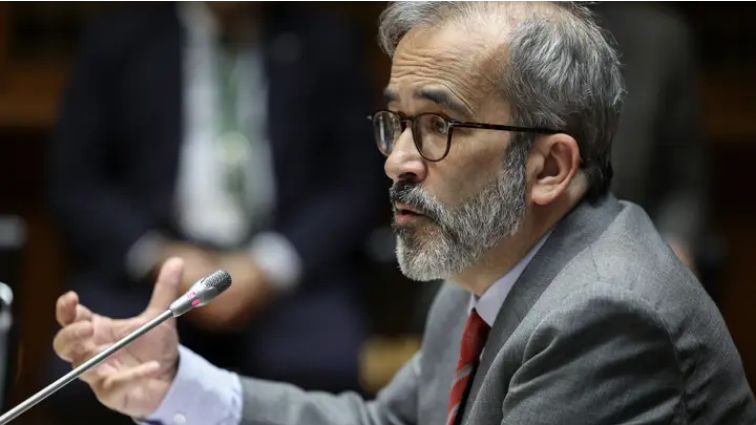At 10.09 a.m., as is parliamentary practice, it was Ana Catarina Mendes as leader of the largest parliamentary group, that of the Socialist Party (PS), to start the meeting and invite the outgoing speaker, Eduardo Ferro Rodrigues, to oversee proceedings on an interim basis.
The procedural committee was unanimously approved and it was 10.15 a.m. that Rodrigues closed the session until 3 p.m.
This committee verifies powers and deals, for example, with the subsititution of members – notably those who are members of the government, for example, starting with the prime minister and PS secretary-general, António Costa.
Mendes welcomed all deputies elected to this parliament, saying that she hoped they would serve their term of office in accordance with what they proposed to the electorate.
Members began to occupy their seats half an hour before the time scheduled for the start of the session. One of the first was Ascenso Simões of the PS.
On the benches were many new faces – particularly on the right of the semi-circle – with around one third of members of the last parliament returning this time.
One of the last members to arrive in the chamber, as Rodrigues was conducting the work, was André Ventura, the single deputy for far-right populist party Chega.
It is one of three parties making their debut in parliament: Chega, which had 1.29% of the vote on 6 October, Iniciativa Liberal, which also secured 1.29%, and Livre, which had 1.09%. Each has one deputy.
People-Animals-Nature (PAN), which had only one deputy in the last parliament, now has four and will thus be able to form a parliamentary group, with the extra rights that brings.
The PS won the most votes in the 6 October elections, at 36.35% of the total, giving it 108 deputies, according to results released by the General Secretariat of the Ministry of Internal Administration (SGMAI).
The Social Democratic Party (PSD) was the second-largest, with 27.77% of the vote and 79 deputies; the Left Bloc (BE) was third, with 9.52% and 19 deputies, the Communist-led CDU coalition fourth, with 6.34% and 12 deputies, the People’s Party (CDS-PP) in fifth, with 4.4% and five deputies, and PAN sixth, with 3.32% and four deputies.









